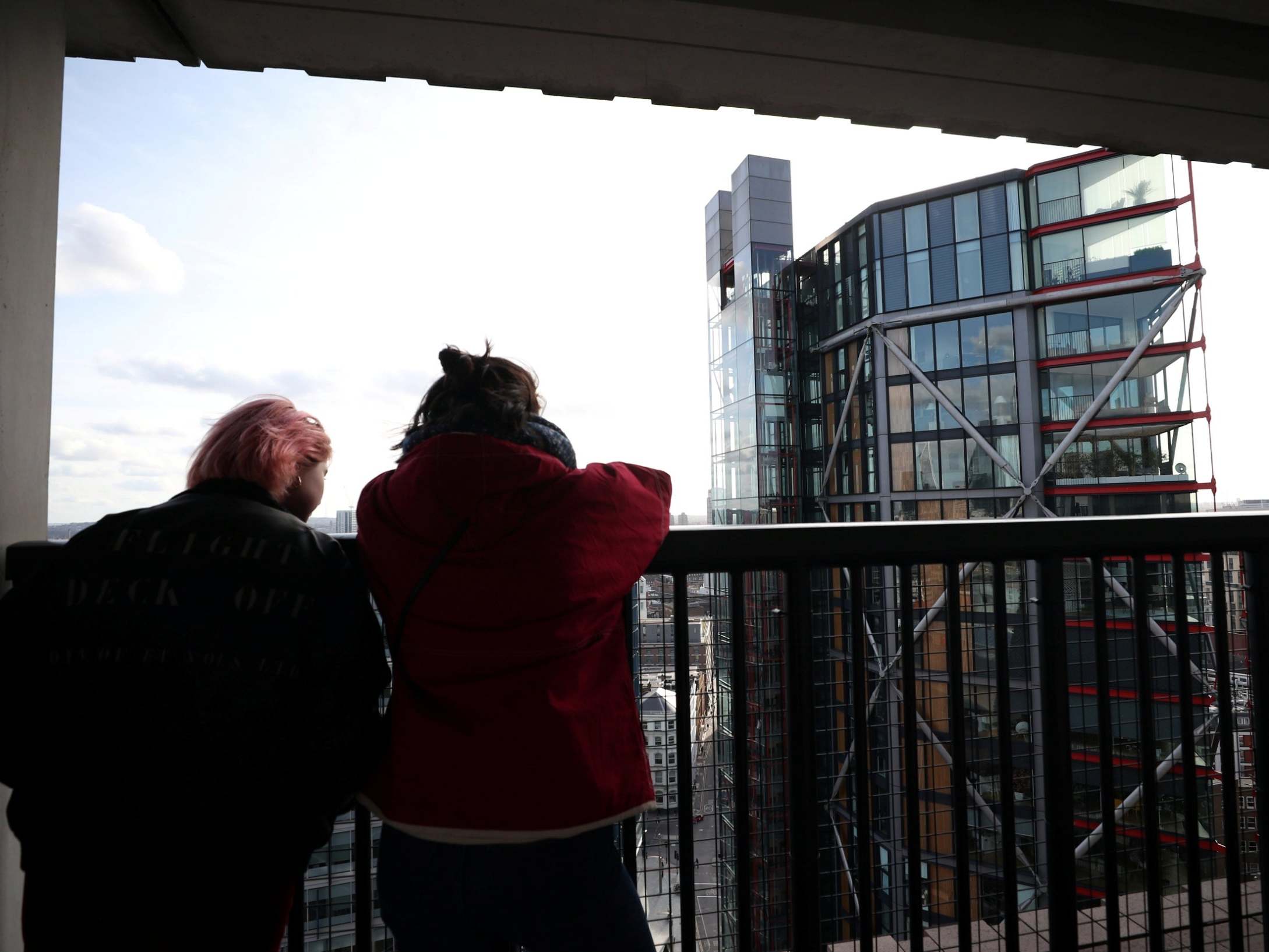Luxury flat owners lose latest round of legal battle against Tate Modern viewpoint overlooking homes
Residents told they can 'draw the blinds' to stop members of public viewing their flats

Your support helps us to tell the story
From reproductive rights to climate change to Big Tech, The Independent is on the ground when the story is developing. Whether it's investigating the financials of Elon Musk's pro-Trump PAC or producing our latest documentary, 'The A Word', which shines a light on the American women fighting for reproductive rights, we know how important it is to parse out the facts from the messaging.
At such a critical moment in US history, we need reporters on the ground. Your donation allows us to keep sending journalists to speak to both sides of the story.
The Independent is trusted by Americans across the entire political spectrum. And unlike many other quality news outlets, we choose not to lock Americans out of our reporting and analysis with paywalls. We believe quality journalism should be available to everyone, paid for by those who can afford it.
Your support makes all the difference.Residents living in flats overlooked by the Tate Modern have lost the latest round of their legal battle with the London gallery.
The owners of four flats in the Neo Bankside development took legal action in a bid to stop “hundreds of thousands of visitors” looking into their homes from the Tate’s viewing platform.
They applied for an injunction which would have required the gallery to prevent members of the public viewing their flats by “cordoning off” parts of the platform or “erecting screening”.
The owners, who lost their case at the Court of Appeal on Wednesday, said they wanted to stop a “relentless” invasion of privacy.
The board of trustees of the Tate Gallery argued the platform provided “a unique, free, 360-degree view of London”, and said the claimants could simply “draw the blinds”.
The High Court accepted last February that “the complete glass walls of the living accommodation” gave visitors at the gallery a “complete (or largely complete) view” into the flats.
However, Mr Justice Mann sided with the Tate and suggested owners could “lower their solar blinds” or “install privacy film (or) net curtains”.
“These properties are impressive, and no doubt there are great advantages to be enjoyed in such extensive glassed views, but that in effect comes at a price in terms of privacy,” the judge said.
On Wednesday, Master of the Rolls Sir Terence Etherton said: “The court has dismissed the appeal on the basis that overlooking does not fall within the tort of nuisance.”
The judge added that the flat owners' application for permission to appeal to the Supreme Court had been refused.
Natasha Rees, head of property litigation at Forsters who acted for the residents, said her clients would consider a further application to the Supreme Court.
“The leaseholders are obviously very disappointed with the outcome of the appeal, not least because they lost on a ground raised by the Court of Appeal,” Ms Rees said.
“This is not a case of 'mere overlooking' but a situation that can clearly be distinguished from the type of overlooking experienced between residential or commercial flats and houses, a fact that was accepted by the first instance judge.”
A Tate spokesperson said the gallery was “grateful for [the Court of Appeal's] careful consideration of this matter.”
“We continue to be mindful of the amenity of our neighbours and the role of Tate Modern in the local community,” they added.
Additional reporting by PA
Join our commenting forum
Join thought-provoking conversations, follow other Independent readers and see their replies
Comments